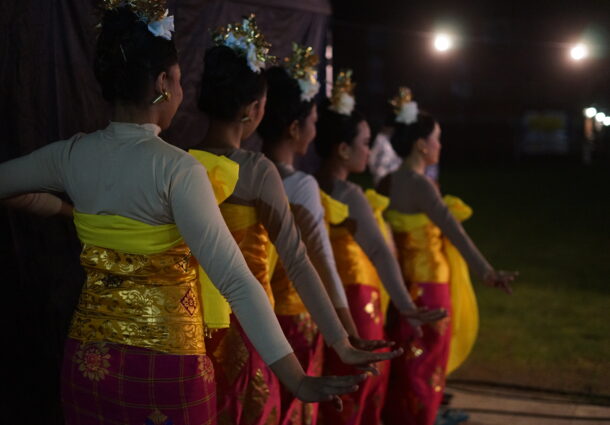Tell us about the Salsa Society!
“Salsa Society is one of LUU’s most dynamic and outward-facing Dance societies. We’re obviously most known for our salsa classes, of which we have two: Crossbody salsa on Tuesdays, and Cuban salsa on Thursdays. But we don’t limit ourselves to salsa — we also run a regular bachata class every Monday, and we also promote occasional sessions for other Latin dance styles, including merengue, cumbia, and zouk. Beyond classes, we also run frequent socials to Latin clubs and dance events in Leeds and beyond!”
What does the World Unite Festival mean to you?
“WU Fest is always one of the highlights of my year. For me, it’s an opportunity for LUU and the University to remember that we really are an international institution, and that every student ought to be able to celebrate their culture and to have their culture celebrated. Through World Unite, students from the world over (and especially the Global South) have the opportunity to claim their space to say ‘We are here, and we are proud of our roots and of our culture'”
Tell us about your culture and what it means to you!
“Personally, I’m Slavic by ethnic origin (Russian and Polish) but I’ve grown up across the world, including in India, Costa Rica, and Peru. So, I’m very much an example of a “child of the world” or a “third-culture kid” (although I might be closer to a five- or six-culture kid!). Having such an international upbringing has made me especially cherish such values as diversity, inclusivity, and open-mindedness. This is a big reason for why I’ve gravitated to LUU societies like Salsa Soc, as we’re a super international society and do our best to be as inclusive as possible (for example, by using genderless terms in our classes).”
Why do you think it is important to connect with our roots and learn more about other cultures?
“I think that there is immense value in staying connected to our roots – I’m reminded of the Maya Angelou quote: “If you don’t know where you’ve come from, you don’t know where you’re going”. Knowing our culture and roots keeps us connected to our heritage and through it to our ancestors’ culture and history. But I also think that learning about other cultures is equally as important. It can prevent us from falling into the trap of cultural chauvinism – or, to phrase this in another way, it can keep us from telling ourselves that our own culture has got all the answers to life or that our culture is the best and only way to understand the world. The simple truth is that no culture has got it all. It is through sharing and interaction that we learn and grow both as individuals and as a community — there is a beauty in this process of exploration and mutual exchange. So, I think we must all master that balance between having pride in one’s own culture and being humbly curious about the rest of the world.”
This article has been edited for clarity before being published.




